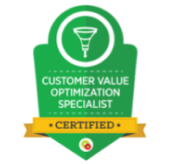Picture the scene.
A woman enters the beauty hall of her local department store to find the perfect ‘look’ for her brother’s wedding.
As it’s a family occasion she wants to push the boat out and feel her best on the big day. However, she’s the first to admit she knows little to nothing about cosmetics, much less how to apply the products she sees others using so confidently.
So here she is in the beauty hall, looking for guidance from the experts.
Surrounded by gleaming counters of lotions, potions and palettes in every colour, she heads for the brand she recognises from a recent glossy magazine feature.
Eyeing the sea of make up in front of her, she waits for the assistant to come and talk her through it all.
And she waits.
When, after a few minutes of cautiously dipping her fingers into tester pots and scribbling lipstick lines onto the back of her hand, she finds herself still standing alone, she glances around at the other counters.
She recognises a brand her friend has mentioned in the past and drifts towards it.
Beauty counters offer expert advice and guidance
As she approaches, the sales assistant smiles warmly.
Our prospective customer explains her predicament to the assistant who listens keenly, taking on board what the customer is looking for and her desired end result.
The assistant settles our customer onto a comfortable stool and starts to gather various products from her counter.
She introduces each product, matching colours and applying them to the customer using her arsenal of beauty tools.
As the assistant works, she explains what the products do, and how the products complement one another to create an overall effect.
She also demonstrates alternatives, as well as the products that will help to remove the make up and care for the skin long after the wedding has been and gone.
She decides to purchase the products and with the lure of a free gift, she adds the cleansing products to her haul too.
After all, she’s been meaning to establish a proper skincare routine for a while now…
But why is all this relevant to you? Why should you care what happens in the beauty hall and what does it matter to you?
The value of onboarding during free trials
Education companies regularly entice potential customers with the offer of a free trial.
Teachers enter their details online and be sent a link or a password to use the product for free for a period of time (usually 30 days).
The thought behind this approach is that once the customer can see what your product does they’re more likely to buy, right?
Wrong.
In our beauty hall scenario, this makes you the unmanned cosmetics counter.
The customer knows your name and has potentially read a bit about you online, but now that they’ve approached you and have the goods in front of them, they don’t know where to start.
Even if they’re happy to have a tentative play, they’re unlikely to know how to use the product to its greatest potential without some assistance.
For a customer to truly see the value of your product in the brief window of the trial period, you need to take on the same role as the beauty counter assistant, providing straightforward guidance and easy to follow instructions.
You need to point the potential customer in the direction of any features or add ons that could enhance their experience and be available to answer any questions they might have.
Sounds time consuming, huh?
It doesn’t need to be.
It’s easy to establish simple processes to guide potential customers through their trial period which, crucially, will make it far more likely they’ll actually use their trial in the first place.
And higher usage often leads to higher conversion rates.
So what does this hand-holding process look like?
- Start with when the customer signs up for their free trial; do you have a short video you could email them showing them how to get started?
- Create a series of nurture emails that showcase a specific feature of the product that can be sent to potential customers throughout their trial period. Remember to explain what it is and why it’s so useful!
- An email, or even a phone call, midway through the trial period is a great way to keep in touch and let the potential customer know you’re available if they need any help or have any questions.
- Use integrated product experience tools like Pendo and
Userpilot to onboard users within your software. - Don’t withhold features from the trial – give the full-fat experience by temporarily unlocking the complete feature set for the potential customer to explore.
- Gather feedback from your existing customers, including any obstacles they’ve overcome by using your product and share them with prospects during the trial.
Adopting a more hands on approach with your free trials allows you to guide your potential customer through your product rather than leaving them to work it out for themselves.
Don’t leave your counter unmanned
Not everyone will need their hand held, some will arrive knowing exactly what they’re looking for.
However, many will need a bit of reassuring guidance to get them on their way and feeling as satisfied with their experience as our beauty hall customer.
Sound good but still not sure you could put the above into practice?
Well, then let us assume the role of beauty counter assistant for YOUR brand.
Book a free growth strategy call with us today and in just 30 minutes we’ll identify the one thing you could be doing to maximise your trial period and increase sales to schools.












